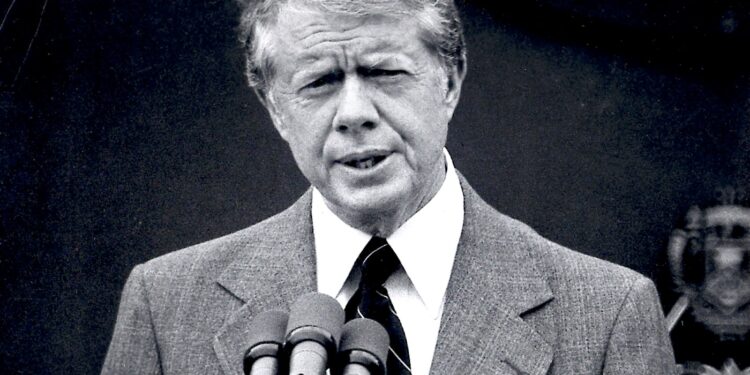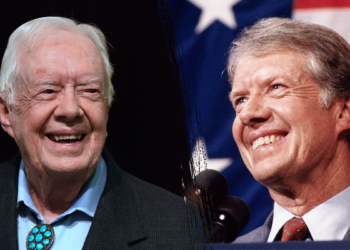
The standard narrative about Jimmy Carter is that he was not a great or even very good president but a very good man who had a great post-presidency and, with his wife Rosalynn, served humanity in countless ways. He won the Nobel Peace Prize.
The narrative is basically correct, but it can be articulated with more precision and more illuminating categories.
The standard debate in Western ethical theory is one that involves three points of view. Two points of view dominated 20th-century ethical theory until 1958 when a series of articles appeared, notably by British Catholic philosophers Philippa Foot and Elizabeth Anscombe, that rejuvenated the ethical theory of Aristotle: virtue theory.
Virtue theory, which revolves around the character of moral agents rather than actions moral agents should take or rules they should follow, was opposed to deontological duty-based ethical theory, which is related to rights theory, and consequentialist theory which is associated with utilitarian ethical and political theory.
To tell the story of Jimmy Carter is to explain how in many ways he was a synthesis of the chief features of the three leading ethical theories of the Anglo-American, even Western, tradition.
First, Carter was a man of extraordinary character. He entered the White House having campaigned on the theme “I’ll never lie to you.” Having experienced President Richard Nixon for more than five years, Americans needed a president they could trust. If ever there was a man in the White House who exuded the virtue of honesty, it was Jimmy Carter.
Indeed, he was probably too honest to have been a great president since politics is such a hard ball sport that it is very difficult to stay so close to the truth all of the time. “Honest Abe,” according to the late Harvard historian David Herbert Donald, was a “pragmatist” in the tradition of John Dewey and nothing close to a man of pure honesty.
Honesty was not Carter’s only virtue. Aristotle distinguished the moral and intellectual virtues, and President Carter excelled in many of them. Among his outstanding moral virtues were courage, justice and compassion; among his outstanding intellectual virtues were wisdom and prudence.
Carter also was a man who gave central attention in his presidency to promoting human rights. Thus when he promoted policies that concerned American women, poor people or helpless people abroad, he talked in terms of human rights.
In ethics and political philosophy, only one group of philosophers talks about human rights as basic to ethics, notably English philosophers like John Locke.
Our dignity as individuals needs to be protected by basic rights to life, liberty and the pursuit of happiness — and indeed those denied voting and employment rights for generations, including black people, women and the disabled, need special rights to overcome the institutional forces against them.
Carter, along with President Gerald Ford, restored truth and honesty to the White House after Nixon blasphemed the White House with his corruption, his manipulation and his devious ways. But he also gave new meaning to the concept of human rights in domestic and foreign affairs.
Although Carter was not a man who spoke regularly about the need to maximize the general welfare or the greatest good via right actions and just institutions, in an important sense everything that Carter, a man of faith, did seemed designed to have great consequences on human life. He was determined, day in and day out, in every nail he hit, to live a life of consequence — a moral life to the nth degree.
By embodying the core concepts of the virtue tradition, the rights tradition and the consequentialist tradition, Carter’s life and work help to illustrate how academic schools of thought at odds with each other can exaggerate the divides that exist in real life, since a person does not have to follow only one tradition of thought.
Carter’s life and work — creating the Department of Energy and the Department of Education, crafting the peace between Israel and Egypt, wrestling with brutal economic and energy crises handed to him, building over 4,000 houses via Habits of Humanity with Rosalynn and colleagues and actively pursuing peace in many foreign lands — show he was more than a not-great president with a great post-presidency.
Jimmy Carter was a moral hero, clearly one of the greatest Americans in our history.
Dave Anderson ([email protected]) has taught ethics and political philosophy at five colleges and universities and is editor of the interdisciplinary volume Leveraging: A Political, Economic, and Societal Framework (Springer, 2014).







